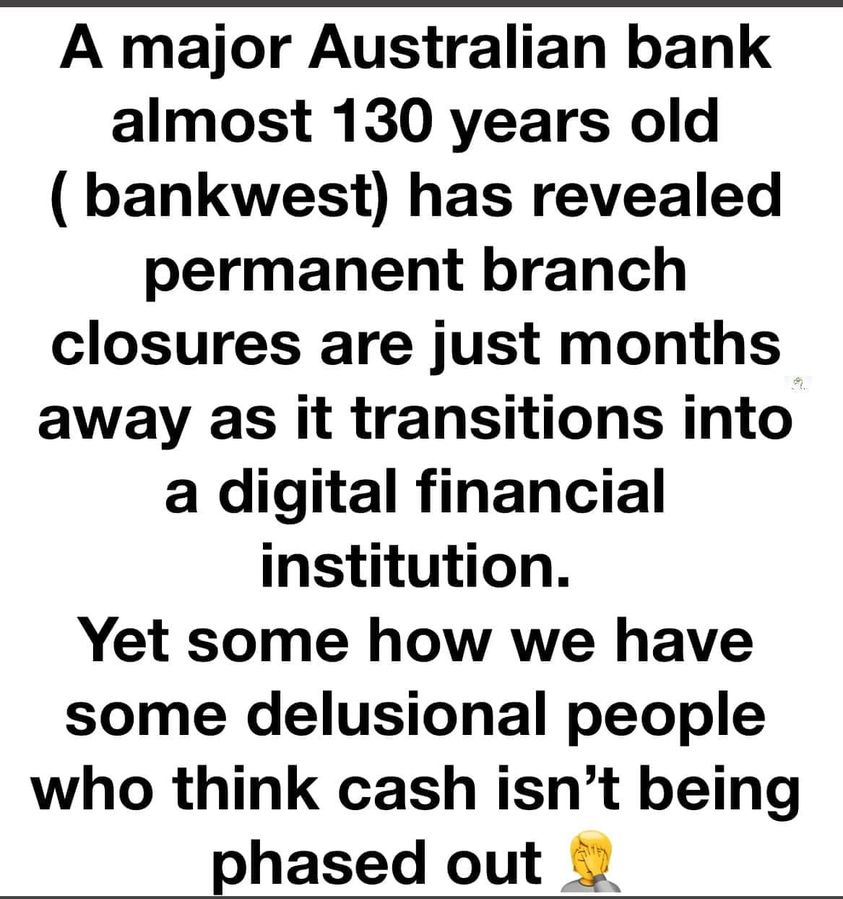CASH MUST STAY!
Mr ANDREW: I would like to thank the Katter party for bringing this motion to the House. Cash is legal tender and the message needs to go out from this House loud and clear that there is nothing dirty or wrong with producing cash and paying for goods or services in that way. As for the amendment to the motion, I notice that Minister Mellish has said, ‘however options should be available where possible’. They should be available everywhere. This is a very important issue. Cash helps people budget. It ensures people in the bush can make purchases where there is no internet, when the phone lines are down and in times of emergency.
I would like to bring to the attention of the House what the Queensland Auditor-General said to us about cyber insecurity. We have a situation where we could have power outages—we have been told this. Even the World Economic Forum, bless their cotton socks, have said that there are cyber insecurity issues from 2024-25 that could leave everybody in a situation where there is no power and the whole place could be blacked out. It would be catastrophic if we did not have any cash, because I am sure everyone will not write IOUs. There is another situation with cash, too. Moving to a digital economy the way we are—the trucks were mentioned earlier. The government used the stopping of digital accounts as a punitive measure because people were not happy with how things were travelling. This is the ‘people’s house’ and if they want to fight for their freedoms, that is their right—they have every right.
There is almost no area of human activity or human life that is not vulnerable to financial or government monitoring of one kind or another. Physical cash offers privacy in a way that electronic cash never can. This is important for people and it ought to be maintained. It also offers our older people relief from having to navigate the financial world online. Many people aged between 65 and 74 have never even used the internet; they would not even know what button to push; they cannot even send a photo on their phone. Cash serves several important functions that cannot be disregarded. The risk of electronic systems failure, insecurity arising from the increased threat of cybercrime and concerns regarding identity and digital connectivity further underline the importance of access to cash for the citizens of Queensland.
Cash is the only form of money that citizens can hold without the involvement of third parties or access to broadband, electricity or equipment. It is simple, easy to use and you know how much you have. The other concept that is relevant here is the alienating effects of this drive towards a digital economy. There is no doubt that there is a growing mental health crisis that comes from the many pressures on people. One feature of that crisis is alienation. Things that used to involve friendly human interactions and relations between human beings are being replaced by faceless and anonymous online interactions. It is not good. There is no doubt that being able to interact with people by means of paying cash, could prove alienating when it comes to human relations. We must be careful about things that will reduce people’s right, or choice, to interact with other human beings in day-to-day economic or social processes. It is critical that government, industry and regulators understand the importance of preserving people’s access to cash, in terms of social and financial inclusion. This is an important motion. It speaks to the retention of choice and freedom and the dangers that are involved in removing that choice and freedom.
There is simply no question that access to cash, and the use of cash, is a matter of vital importance for not only many ordinary people but also community groups. The motion is straightforward. Refusal to accept cash as a payment is, I believe, unconstitutional and discriminatory. In every single government agency—across the whole spectrum, regardless of what department we work with—the acceptance of cash and the way that we do dealings with cash must be preserved at all costs.

No responses yet